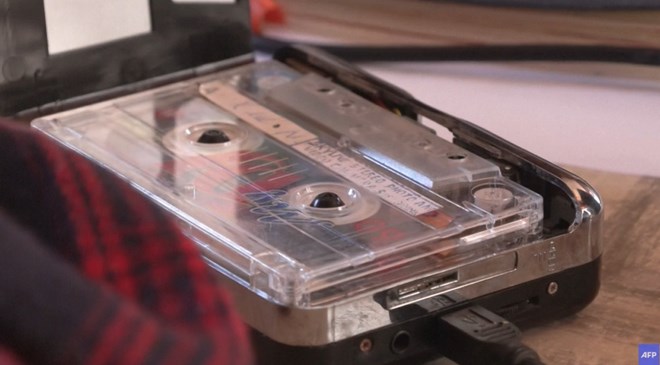
Thursday December 19, 2024
In a library in Somaliland, Hafsa Omer presses play on a small cassette player. The sound of a Somali lute interwoven with a woman's soft singing fills the room.
Tapping her keyboard, Omer bobs with the rhythm of the pentatonic melody typical in the northern region of the Horn of Africa.
advertisements
Since 2021, the 21-year-old has been painstakingly archiving and digitising a collection of some 14,000 cassettes at the Cultural Centre in Hargeisa, the Somaliland capital.Bought back, found or donated, the tapes contain more than half a century of the musical, cultural and political life of the region.
Somaliland has run its own affairs since unilaterally declaring independence from Somalia in 1991 but remains unrecognised by any country.
That makes cultural heritage -- like the tapes -- vital.
"Many people don't consider these things to be important, but they contain the whole history of my country," Omer told AFP.
"My people don't write, they don't read. All they do is talk."
Somalis have traditionally been primarily nomadic shepherds, with culture transmitted orally from one generation to another.
What is now Somaliland has long been a centre of music and poetry -- art that plays a crucial, even political, role in this corner of Africa.
The public radio station, Radio Hargeisa, also has a collection of over 5,000 reels and cassettes, programmes and music recorded in its studios since its founding in 1943.
The tens of thousands of hours of tapes in the cultural centre tell a less official story -- ranging from 1970s counterculture "Somali funk", to unreleased recordings of play rehearsals and accounts of people's daily lives.
With small tape recorders becoming widely available in the 1970s and 1980s, Somalilanders got into the habit of corresponding with exiled relatives via cassette.
Gathered around a tape recorder, they would recount intimacies of family life but also survival during a decade-long war that culminated in the declaration of independence in 1991.
The conflict between rebels and the Mogadishu-based military regime of Siad Barre saw around 70 percent of Hargeisa destroyed in 1988.
Jama Musse Jama, director of the cultural centre, described how troves of cassettes were recorded "underground" as people met clandestinely to chat, chew the stimulant khat and talk politics.
"They cannot say (these things) in public," he said. "You find all what didn't end up in the ordinary, formal recordings of the state -- what was happening in the streets."
Fewer than 5,000 cassettes have been catalogued and only 1,100 digitised, leaving a titanic task for Omer and her team of four friends.
But it has become a fitting cultural odyssey in a place still searching for recognition.
"It's proof against those who say Somaliland doesn't exist," said Jama.
He believes his and Omer's work will guide younger generations searching for their past -- a storied history that stretches beyond their regional conflict to its time as an Italian and British colony and beyond.
"We need to give them an identity," he said.
"All these stories that make up the identity of the Somaliland people are in these recordings."